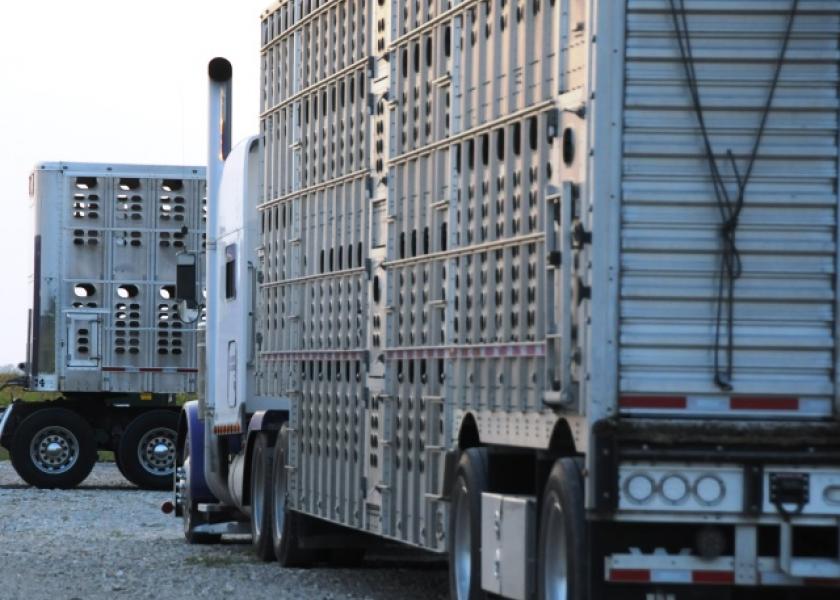NCBA Delivers Progress on Backend 150 Air-Mile Exemption for Livestock Haulers

The National Cattlemen's Beef Association (NCBA) delivered progress on much-needed regulatory flexibility for livestock haulers. The addition of the backend 150 air-mile exemption from hours-of-service (HOS), crucial language pulled from the HAULS Act, was agreed to by Senator Deb Fischer (R-NE), Senator Jon Tester (D-MT), Committee Chair Maria Cantwell (D-WA), and Ranking Member Roger Wicker (R-MS) in the Senate Commerce Committee and adopted into the larger Surface Transportation Investment Act of 2021 by a bipartisan vote.
NCBA spearheaded introduction of the larger HAULS Act in both the Senate and House this spring, and worked hard to get the backend 150 air-mile exemption included in the Surface Transportation Investment Act that will be sent to the Senate floor.
Livestock haulers are a critical part of the supply chain keeping grocery stores stocked with high-quality U.S. beef. The upheaval of the pandemic and ongoing market volatility has only underscored the need for further flexibility in livestock hauling regulations to keep the supply chain strong.
"When one-size-fits-all government regulations fail to account for expertise on the ground, livestock haulers are put in the impossible position of either complying with regulations or doing what they know is best for the humane and safe transportation of live animals," said NCBA Executive Director of Government Affairs Allison Rivera. "We strongly support this bipartisan, commonsense effort to give livestock haulers the flexibility they need to maintain the highest level of safety for drivers on the roads, transport livestock humanely, and ensure grocery stores remain stocked with beef. We thank Sen. Fischer, Sen. Tester, Sen. Cantwell, and Sen. Wicker for their leadership on this legislation, and we will continue working with Members of Congress to move this language across the finish line.”
Background
Current hours-of-service (HOS) rules allow for 11 hours of drive time, 14 hours of on-duty time, and then require 10 consecutive hours of rest. When transporting livestock, there is a real need for further flexibility beyond the current hours-of-service. Unlike drivers moving consumer goods, livestock haulers cannot simply idle or unload their trucks when drive time hours run out without jeopardizing animal health and welfare. The HAULS Act language adopted today into the Surface Transportation Act would add a 150 air-mile radius exemption under HOS regulations to the backend of hauls for those transporting livestock.
NCBA is working with Members of Congress from across the country to ensure that any infrastructure and transportation spending bills reflect the unique needs of rural communities and cattle producers.
Throughout the COVID-19 pandemic, NCBA successfully fought every month for a renewed emergency declaration which provides an exemption from hours-of-service for livestock haulers, while also working with Congress to maintain the ELD delay for livestock haulers until Sept. 30, 2021.







